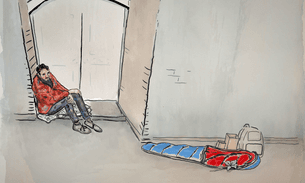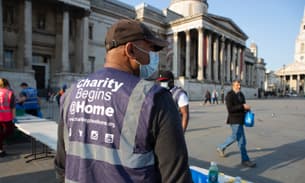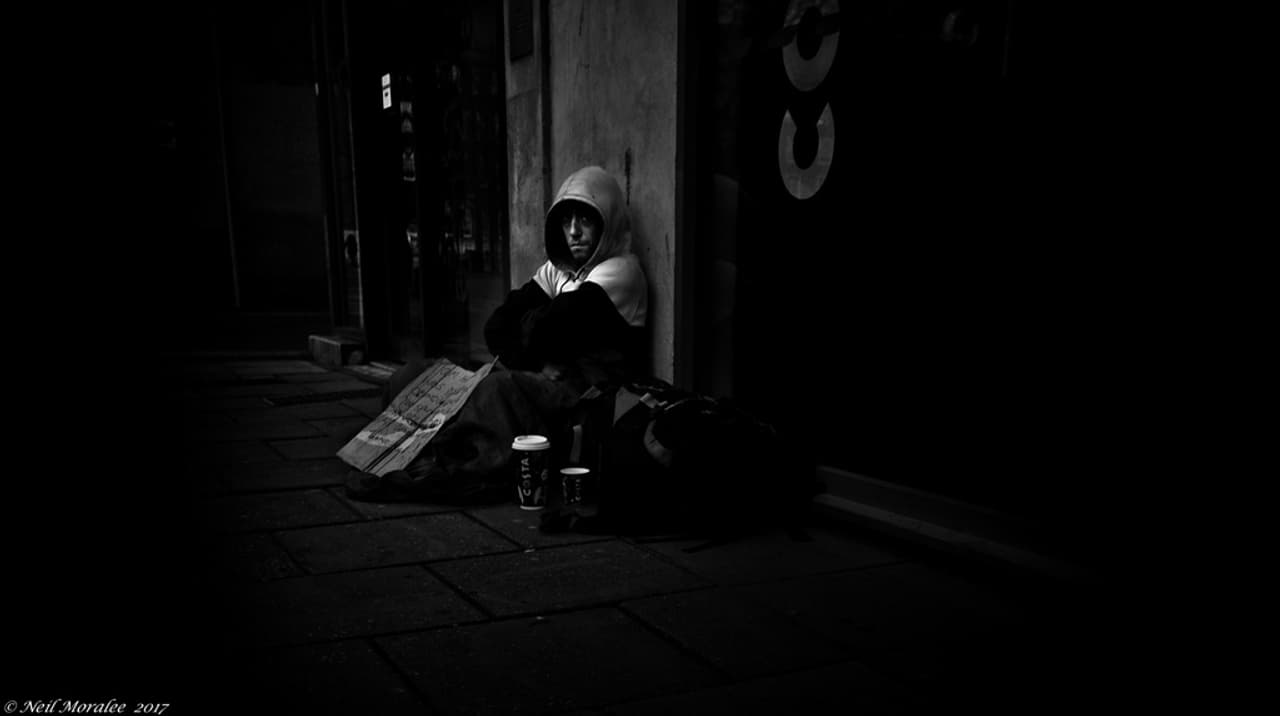
A hundred homeless people have died since October but no-one is asking why
It has been almost two years since Cardon Banfield’s partially-mummified body was found in a tent, just metres from a public footpath in Worcester.
The homeless 74 year-old, who settled in the UK from the Caribbean in 1961, part of the Windrush generation, was so badly decomposed that the coroner was only able to identify him through DNA testing.
In the intervening years, campaigners and local charities have pushed for an official review into how an elderly man came to such an ignominious end. But despite public pressure, the local Safeguarding Adults Board - the body tasked with exploring possible social care failures - refused to do an official review.
This week Worcester City council published an informal review into Banfield’s death. Now, those that called for the review say it fails to fully address the issues and are calling again for an official review.
The Bureau of Investigative Journalism can reveal that homeless deaths are hardly ever reviewed in England and Wales, with, on average, just one official review a year being logged since 2010.
With no official count of deaths and very few reviews being commissioned, experts are concerned that officials simply do not know how and when homeless people are dying.
In this climate, the Bureau has launched Dying Homeless, a project to record deaths on UK streets.
Our tally currently shows that over 100 homeless people have died since we began counting in October last year, an average of three people a week.
The deaths we have looked at include a 41 year-old man in Bristol who was said to be suffering “prolonged starvation”, an 81 year-old man with no known family members, and a 69 year-old man found in an abandoned shed, whose body was so badly decomposed that the coroner could find no cause of death.
After submitting Freedom of Information requests to councils about 83 of the recent deaths in our database, we found that there was not a single official review launched and only one instance of an informal review happening.
More widely, we only found eight official reviews into homeless deaths by any Safeguarding Adult Board since 2010.
Make change possible
Investigative journalism is vital for democracy. Help us to expose injustice and spark change
Click here to support us“Enormously disappointing”
Homelessness charities, including Homeless Link say the best practice is for every homeless death to be followed by a Safeguarding Adult Review.
A Safeguarding Adult Review (SAR) is a review process that brings together agencies and individuals that worked with a vulnerable adult - including doctors, social workers and outreach workers - to determine what could have been done differently to prevent a harm or death.
While there is no central database for Safeguarding Adult Reviews, we found 52 reviews published online since 2010. The statutory criteria for launching a review does not specifically mention homelessness although, as the Bureau has found, there have been one a year since 2010.
Now, charities including Crisis, St Mungos and Thames Reach are calling for reviews to take place whenever a rough sleeper dies.
Jeremy Swain, Chief Executive of Thames Reach said: “It is enormously disappointing that there are so few examples of Safeguarding Adult Reviews following the death of a person sleeping rough.
“This unfortunately leads me to the disturbing conclusion that the death of someone sleeping rough is viewed as less important than of a housed person, or can be waved aside because of a misapprehension that the person has made an informed choice to sleep rough,” he said.
From the reviews published so far, we have found cases of independent advisers warning authorities that the procedures to protect and support a transgender homeless person in Brighton were not invoked. And that there were missed opportunities to help a homeless woman in Rochdale who had been known to authorities for 13 years and who fell or jumped to her death from a town-centre building.
In other cases, the Bureau has been told that reviews have been refused, despite repeated requests from concerned charities and citizens.
While these reviews are not a mandatory requirement for every homeless death, experts argue that they are a vital tool to prevent future deaths.
Rick Henderson, Chief Executive of Homeless Link, called the Bureau’s findings “concerning.”
“[Reviews] will help public and voluntary agencies to identify how they might have intervened earlier or worked differently to avoid an individual falling through the gaps. The learning and recommendations from these reviews are invaluable for improving the support available for vulnerable people and preventing needless future deaths,” he said.
Both Crisis and Thames Reach told the Bureau they hope the need for reviews is addressed in the government’s Rough Sleeper Strategy, which will be published in July.
When asked why these reviews aren’t happening more regularly, Professor Michael Preston-Shoot, the Independent Chair of two Safeguarding Adult Boards noted that the current criteria for a mandatory review does not include homelessness as a main factor.
He said awareness of the process is “very variable across the country. It may be that agencies are just not referring cases.”
Preston-Shoot also noted that there have been reviews of cases involving homelessness but pointed out that because boards are not obliged to publish completed reviews and because there is no national repository, a complete data set of the numbers and types of reviews is not available.
The Bureau was also told how some boards struggle with funding, with straightforward reviews costing at least £8,250.
“Resourcing is very variable across the country, some boards have larger budgets and other available resources than others,” said Preston-Shoot. “But I have never met a chair who has said they’re not going to do a review because they can’t afford it.”
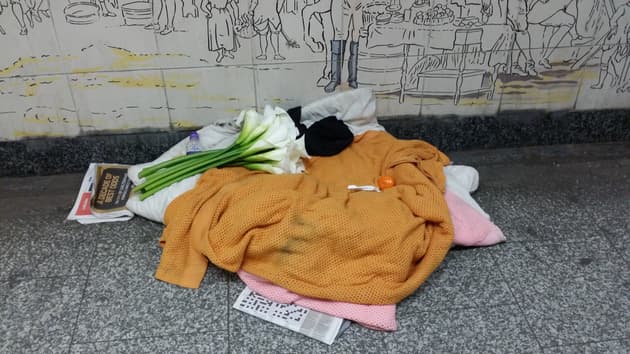 Makeshift bed in London
via Maeve McClenaghan/TBIJ
Makeshift bed in London
via Maeve McClenaghan/TBIJ
“You’re going to wait until someone else dies?”
It was the smell that first alerted a member of the public to a small tent, partially hidden in the bushes near Worcestershire County Cricket Club. Inside lay Cardon Banfield.
The 74 year-old’s body was so badly decomposed he was only identifiable through DNA tracing. Due to the condition of the body the coroner was unable to find a cause or date of death, and an open verdict was recorded.
Despite outcries from the public, as covered by James Connell in the Worcester News, the local Safeguarding Adult Board refused to do a review, saying “Mr Banfield was deemed to, at his own choice, only have had very limited involvement with services in Worcestershire” and that “he had actually spent very little time in Worcestershire prior to his death”.
Local campaigner and former rough sleeper Hugo Sugg took up the cause. He had met Banfield years before and remembers “a talkative and really interesting guy”.
Through Freedom of Information requests, Sugg uncovered council paperwork, seen by the Bureau, which proved that the council’s housing team had registered the man in 2014.
“Cardon’s name was right there, 20cm from the council’s logo,” he said, “so them saying that he’d never accessed services was just wrong.”
A change in the chair of the safeguarding board sparked hopes that the review might be reconsidered, however the decision not to hold a SAR was upheld.
Frustrated with the response from the board, campaigners turned to the city council and asked them to do an informal review.
At first the council said it would only hold a review if and when there was another homeless death. “Which shocked everyone... This notion of you’re going to wait until someone else dies, this again before you do anything? I was utterly horrified by that,” said Sugg.
The city council has now completed an informal review, which was published earlier this week. However, because of the informal nature of the council’s review, the independent investigator had no statutory or legal powers to force people to comply or to handover relevant information. The report’s author also notes that given the timeframe, many people who would have been aware of Banfield have moved on and were not contactable.
The report contains a series of recommendations for the council, including the suggestion that it: “Develop and implement a protocol for working with individuals that are transient.”
Banfield’s niece Faith Felix, heard the news on the report from her home in the Caribbean. “This is sad all over again… they must improve and make sure no one else suffers.”
While the city council has committed to holding their own reviews in a more timely manner, local groups including Healthwatch Worcestershire and St Paul’s hostel are still calling for a full SAR into Banfield’s death.
Answers for Neculai
Sugg is not the only one looking for answers after the death of a homeless friend. Our research shows that three homeless people a week are dying and deaths are rarely investigated.
One of those was Neculai Popa. Plagued by ill health and frequent admissions to hospital, Neculai died in a homeless hostel on 5 December 2017.
Weeks later, at a memorial in St Mary’s Church Islington, and just minutes from the pitch where Neculia would sell The Big Issue, strangers gathered to remember the 33 year old.
Many of those at the ceremony did not know each other. Neculai had lived a complicated and fractured life. It was only after his death that his friends were beginning to put all the pieces together.
But since his death, despite concerns over his treatment from friends that knew him, there has been no official review into the services he received or whether enough was done to support him.
Graphic designer Gordon Bennett and picture editor Amparo Escobedo had got to know Neculai when he sold the Big Issue in their neighbourhood.
“He was very kind, very nice,” smiled Escobedo. “And very quiet,” added Bennett, “I mean he wouldn’t ask anyone to buy the Big Issue. He’d just sit there with them.”
Necuali was known to various authorities in London. He had been given temporary accommodation by Islington council until it was decided he was ineligible because of his immigration status. The flat was taken back three months later and Neculai went back to sleeping rough.
University College Hospital treated him regularly for over two years, and homelessness charity Pathway worked with him during and after hospital visits.
But his friends believe these various agencies were not working in a joined up way, and that Neculai slipped through the gaps. They have since submitted a formal complaint to the hospital and charity.
“No-one was following up his situation. People were doing a little here, a little there, but that’s not enough,” said Escobedo. “If you don’t have a plan and you just discharge him, then he’s back in the street. He was really stressed at the end. He was really desperate,” she added.
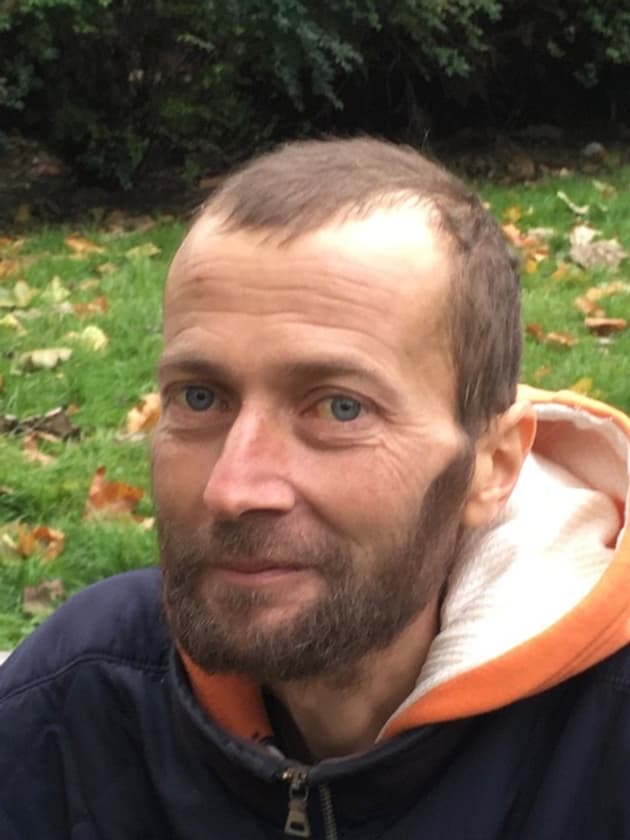 Portait of Neculai Popa
via Jamie Walls
Portait of Neculai Popa
via Jamie Walls
The hospital and Pathway said they are looking into the complaint but noted that it cannot give details to people who are not next of kin.
Islington Council confirmed there was no SAR held into Neculai's care but said it would “support calls to learn from the deaths of Neculai and other homeless people.” A council spokesperson added: “We also call on the Government to properly fund help for homeless people, and are concerned that national policies such as welfare changes threaten to make homelessness worse.”
In response to the Bureau’s findings Matt Downie, Director of Policy and External Affairs at Crisis, called for all homeless deaths to be reviewing, saying: “This will allow us to have a more accurate picture of the number of people who die in this situation, and will give the authorities, councils and homelessness services valuable information that could help them prevent the deaths of rough sleepers in the future.”
A spokesperson from the Ministry of Housing, Communities and Local Government said: “Every death of someone sleeping rough on our streets or without a home is one too many.
“We are taking bold action and are determined to halve rough sleeping by 2022 and eliminate it by 2027. Just this month we announced more than £25 million for new Housing First pilots to get people into stable and affordable accommodation, and in total we are investing more than £1.2bn to tackle all forms of homelessness.”
Additional reporting by Sania Aziz
Header picture by Neil Moralee (under Creative Commons BY-NC-ND 2.0)


